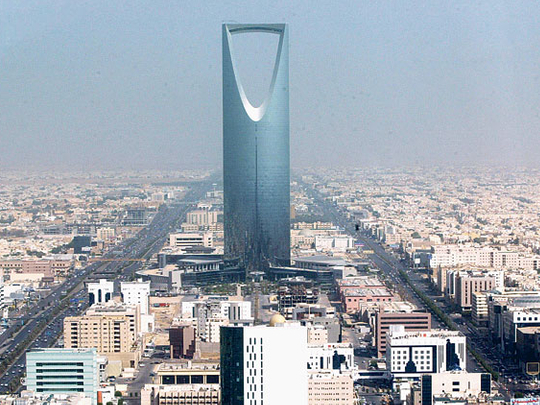
Riyadh: Saudi Electricity will raise tariffs for government, commercial and industrial users as of July 1, which would add 3.2 billion riyals ($853.3 million) to its annual revenues and boost its profitability.
This is the latest gesture from the government to help its state-controlled power utility cope with power demand growing at an annual eight per cent and requiring investments close to $80 billion in the ten years to 2018.
The move will raise by 9.6 per cent the average price of electricity sold to non-household users but it would still remain 3.5 per cent below its actual production cost in the world's top oil exporter, Abdullah Al Shehry, governor of the Electricity and Co-generation Regulatory Authority, told reporters yesterday.
Shares in Saudi Electricity rose by up to 9.8 per cent after the announcement.
"Based on current global fuel price, the production cost of electricity is 0.372 riyals per kilowatt per hour (kwh), while these new increases will raise the average tariff for all users to 0.137 riyal up from 0.125 riyal previously," Shehry said.
Ali Saleh Al Barrak, Saudi Electricity Chief Executive, said he expects the firm's revenues to add about 1.6 billion riyals in the second half of 2010 as a result of the increase.
"It will have a very good impact on profitability," Barrak told Reuters.
"Revenues from electricity sales are not enough to cover operating costs and at the same time fund the investments required by the growth in demand," Barrak added.
Water and Electricity Minister Abdullah Al Hussain said the annual growth in power demand meant the need to add 3,000 megawatts to the power generation capacity each year, which currently stands at 40,900 megawatts.
"This (3,000 megawatts) is huge by all standards. Over the 2009-2018 period, the growth in power demand will require 300 billion riyals in investments," Hussain said.
Bearing the burden
For the industrial sector, which accounts for 18 per cent of the power consumption, the price of electricity will increase by between 0.0125 and 0.02 riyals for one kilowatt per hour, depending on the size of the plants and the seasons.
Saudi Electricity expects to earn 1.04 billion riyals each year from the rise in industrial electricity tariffs but the increase in electricity tariffs for the government will earn it 1.4 billion riyals, Hussain said.
"The electricity bill accounts for one per cent of the overall production cost for 90 per cent of industrial firms ... This shows that the government continues to bear the burden for other sectors in the economy," he said.
The government granted the cash-strapped firm a 15 billion riyal soft loan in April to support its finances.
Households account for 53 per cent of power consumption in the desert kingdom and much of it is used for air-conditioning.
The company also said that it uses far less oil for power output than figures given by a member of the country's regulatory authority last week.
It said 100 million barrels of crude were used in 2009 for electricity production, or about 274,000 barrels per day.
"Half the electricity production in the kingdom uses available natural gas as a feedstock while power plants in the western coast use heavy fuel oil," Al Barrak said in the statement.
He did not explain the discrepancy the figures given by Abdullah Al Shehry on Tuesday.












